New Publication
J.H. Breuste, M. Artmann, C. Ioja, S. Qureshi (Eds.)
Making Green CitiesConcepts, Challenges and Practice
Series: Cities and Nature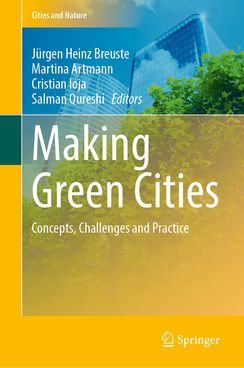
- Provides an interdisciplinary overview of best practices and challenges
- Includes structured international case studies
- Provides an introduction on culture, preexisting nature conditions, existing urban surrounding, history, design and planning
This book shows what role nature can play in a city and how this can make it a better place for people to live. People, planners, designers and politicians are working towards the development of green cities. Some cities are already promoted as green cities, while others are on their way to become one. But their goals are often unclear and can include different facets. Presenting contributions from world leading researchers in the field of urban ecology, the editors provide an interdisciplinary overview of best practices and challenges in creating green cities. They show examples of how to build up these cities from bits and pieces to districts and urban extensions. Each example concludes with a summary of the collected knowledge, the learning points and how this can be used in other places. The best practices are collected from around the world – Europe, Australia, America and Asia. The new dynamic urban development of Asia is illustrated by case studies from China and the Indian subcontinent. The reader will learn which role nature can play in green cities and what the basic requirements are in terms of culture, pre-existing nature conditions, existing urban surroundings, history, design and planning.
SUNRAISE – SURE Summer School URBAN + MOUNTAINS 7th – 14th of July 2019 – Salzburg, Austria
By the University of Salzburg, Austria, in cooperation with the Society for Urban Ecology (SURE)
The Summer School is organized under the Erasmus+ projects «Systems for Monitoring and Responses to Early Warnings»
The summer school is organized by the University of Salzburg (Austria) and the Society for Urban Ecology (SURE) in cooperation with Austrian and international partners. It aims at exploring human and environmental challenges and finding solutions for these. The Alps, Europe’s highest mountain system, serve as the perfect study area for this purpose. The school will include training on research methodology and group work on various research projects. The research part will be in connection of the Summer School from 15th till 21st of July.
Further information here
No fees for the lectures of the Summer School. Accommodation has to be paid individually.
Summer School academic director:
Univ.-Prof. Dr. Jürgen Breuste
University of Salzburg, Leader of the research group Urban landscape ecology
The UNESCO Global Geoparks Council has approved the revalidation of Ore of the Alps as a UNESCO Global Geopark
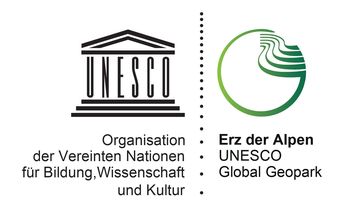
UNESCO Global Geoparks explore, develop and celebrate the links between their geological heritage and all other aspects of their natural and cultural heritage. They reconnect human society with the history of our planet across 4,600 million years that have shaped every place on Earth and all life that has ever lived here.
Prof. Breuste is a scientific partner of the Geopark and was involved in numerous activities of the Geopark in the last years. He also was involved in the preparation and implementation of the certification defense. The UNESCO Global Geopark is partner of this year’s Summer School (7-14 July) in Salzburg. On Friday the 12th of July, the UNESCO Global Geopark will be visited in a field of excursion by our international participants and lecturers.
Program Summer School
Research and qualification work on the Geopark will be continued. Interest from the Salzburg students is welcome. Please contact Prof. Breuste.
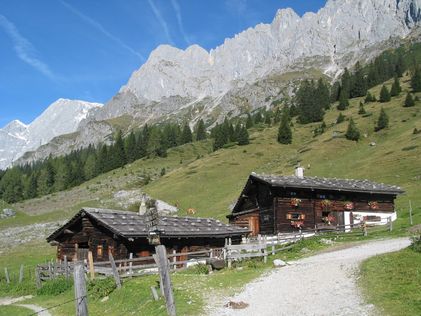
Foto: Breuste
Certificate UNESCO Global Geopark
Honorary professorship of the ECNU Shanghai awarded to Univ.-Prof. Dr. Jürgen Breuste
Univ. Dr. Jürgen Breuste was awarded a honorary professorship by the East China Normal University Shanghai (ECNU) on April 19, 2019 in Shanghai, China. The award was presented by Prof. Ding Pingxing, Director of the Faculty of Earth Science on behalf of University President Prof. Dr. med. Chen Qun and took place in the context of a ceremony. Prof. Breuste would like to thank the numerous employees and students of the School of Ecological and Environmental Sciences with a lecture on the results of his urban ecology research.
Univ. Breuste has been working in research and teaching since 2009 in close cooperation with the School of Ecological and Environmental Sciences and its director Prof. Dr. med. Junxiang Li. From 2009 to 2015, he was Visiting Professor and was appointed to ECNU as a professor of „Urban Ecology“ as part of a government program for 2015-2017. Univ.-Prof. Dr. Breuste supervised numerous students from Austria and China in her qualification work cooperatively with Prof. Li, conducted several international summer schools and field trips in Shanghai, conducted research with Chinese and international partners on the urban ecology of the Shanghai agglomeration and on ecosystem services and biodiversity of urban nature. International journal articles and book contributions together with Chinese partners.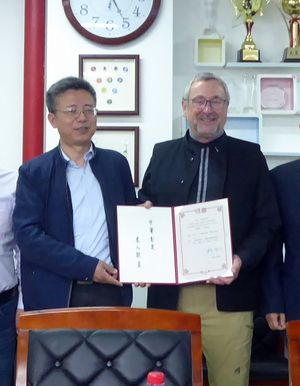
Photo: Prof. Ding Pingxing, Director of the Faculty of Earth Science, ECNU, Shanghai (left), Univ.-Prof. Breuste (right)
Ecological Society of America’s Sustainability Science Award 2019
The article „Advancing Urban Ecology toward a Science of Cities“ by McPhearson T. et al. has been selected to receive the Ecological Society of America’s 2019 Sustainability Science Award.
This award is given to the authors (Univ.-Prof. DDr. Jürgen Breuste as co-author) of a peer-reviewed paper published in the past five years that exemplifies leading edge work on solution pathways to sustainability challenges. The award recognizes that the application of sustainability science is enabled by linking ecological science with advances in other biophysical disciplines, engineering, the social sciences (e.g. economics, anthropology, public policy, governance), and other fields. The award recognizes higher risk ideas that are yet to be fully tested but hold great promise for achieving a sustainable world.
Publication here
Guest scientist Mister Ruiming MA
Since October 2018 is Mister Ruiming Ma (Master of engineering of China University of Geosciences, Beijing) of the China Agricultural University, College of Land Science and Technology, in the frame of a scholarship of the China Scholarship Council for one year as guest scientist in the Research Group Urban and Landscape Ecology. He works on a Ph.D thesis: “Study on the potential calculation of rural residential areas based on spatial differences” and will especially study the ecosystem service approach for urban framing and gardening on Salzburg examples.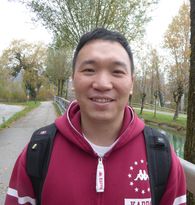

URBES Project awarded with the Biodiversa Prize for Excellence and Impact
Urban Biodiversity and Ecosystem Services
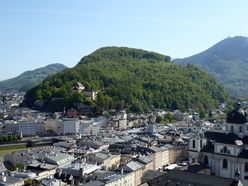
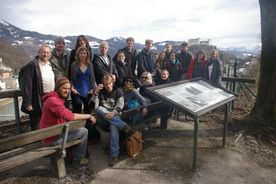
Biodiversity and ecosystem services of urban ecosystems are becoming increasingly important for healthy urban living. Green and Blue Infrastructure offer these services. Salzburg is a pioneer in attractive offers of ecosystem services. Ten European and one American partners have joined forces over 4 years (2011-2014) to analyze, evaluate and apply these services in planning practice. The results have made them widely accessible in 39 publications, many events and a wide public relations work. The team was awarded with the BiodivERsA Prize for Excellence and Impact in 2018.
Project duration: 2011-2014
EU funding: 2.66 mill. €
www.biodiversa.org
BiodivERsA3 – Consolidating the European Research Area on biodiversity and ecosystem services
The interdisciplinary URBES project has filled important gaps in the research fields of urban biodiversity and ecosystem services for urban human well-being, thereby promoting the capacity of climate change adaptation in European cities and helping to reduce their ecological footprint.URBES focuses on functional diversity, urban ecosystem services, institutional applications, economic aspects and resilience development.The URBES project is a leader in the development of a TEEB approach (The Economics of Ecosystems and Biodiversity) in the urban context. This innovative approach assesses the economics of ecosystems and biodiversity through monetary and non-monetary methods, including management and governance implications and outcomes. For this purpose, guidelines and tools for the implementation of the results are developed. The results of the research will be passed on to important stakeholders.The cities of Berlin, Stockholm, Rotterdam and Salzburg, and in part Helsinki and New York are the arenas of empirical research. URBES itself consists of 10 research institutes in Europe and the New School in New York City, which are optimally positioned to tackle the challenging interdisciplinary tasks of the project. In order to achieve the ambitious projects of URBES, the scientific objectives of the project address the most urgent research questions of the area in an interdisciplinary manner:
- Investigation of the links between urban biodiversity, ecosystem services and land use
- Assessment of biodiversity and various ecosystem services using monetary and non-monetary approaches, and development and consideration of ecosystem services indicators in a multi-criteria analysis
- Institutional governance and management of urban biodiversity and ecosystem services
- Communication and training for knowledge transfer
URBES developed a professional communication and training program in collaboration with ICEI and IUCN. The Global Partnership Program, including the CBD, TEEB, IPBES and EU Partnerships, with a particular focus on the post-2010 EU Biodiversity Strategy, the Urban Environment Thematic Strategy and biodiversity and environmental input for national strategies, contribute to sustainable long-term use the results.
Summer School in Russia in July 2018
The Summer School offers PhD/MSc students and junior researchers from universities around the world a chance to study best practices in the field of monitoring and early warnings in rapidly changing social-ecological systems of mountain regions. The school will be co-organised by SUNRAISE in July 15-29, 2018; introductory sessions will start at Siberian Federal University and Stolby Nature Reserve, theoretical and methodological training will take place on Manzherok Camp facilities in the Altai Mountains, and for the field research participants will travel to Lake Teletskoye and Katun Nature Reserve. The latest updates, including the full call for applications, detail description and the application form are available from SFU Summer Programs.
The general application deadline is April 10, 2018, however the participants affiliated to the organisations from SUNRAISE partnership have to apply by March 15, 2018 in order to benefit from the travel support and other arrangements provided through SUNRAISE.
Read more





